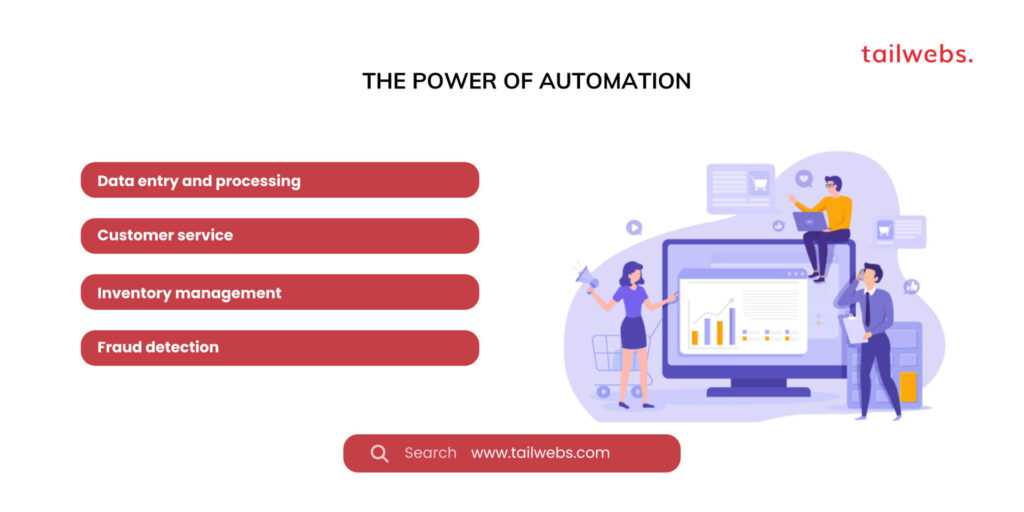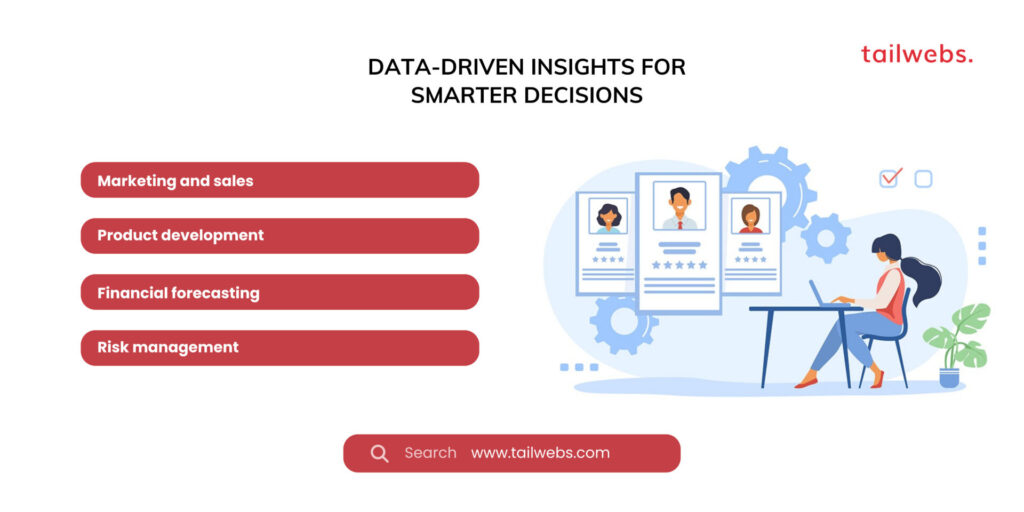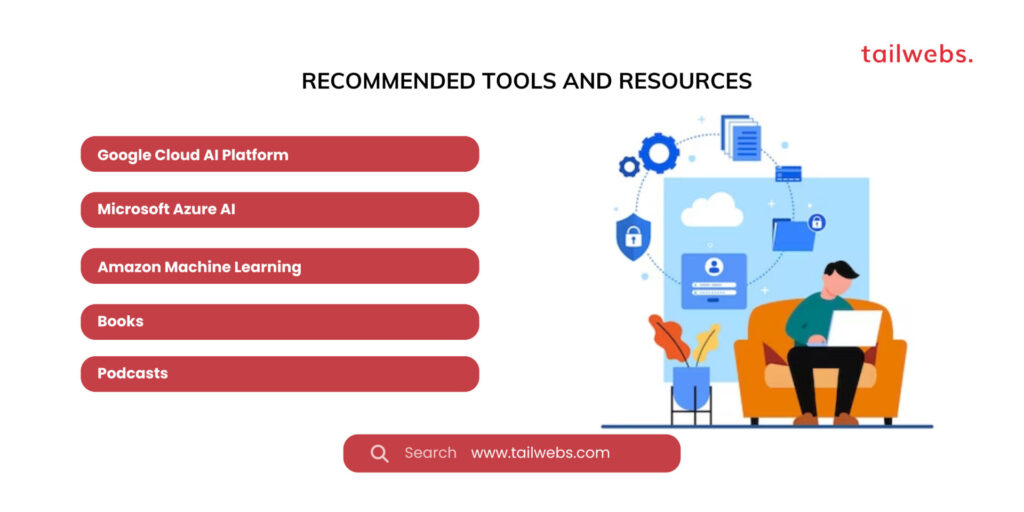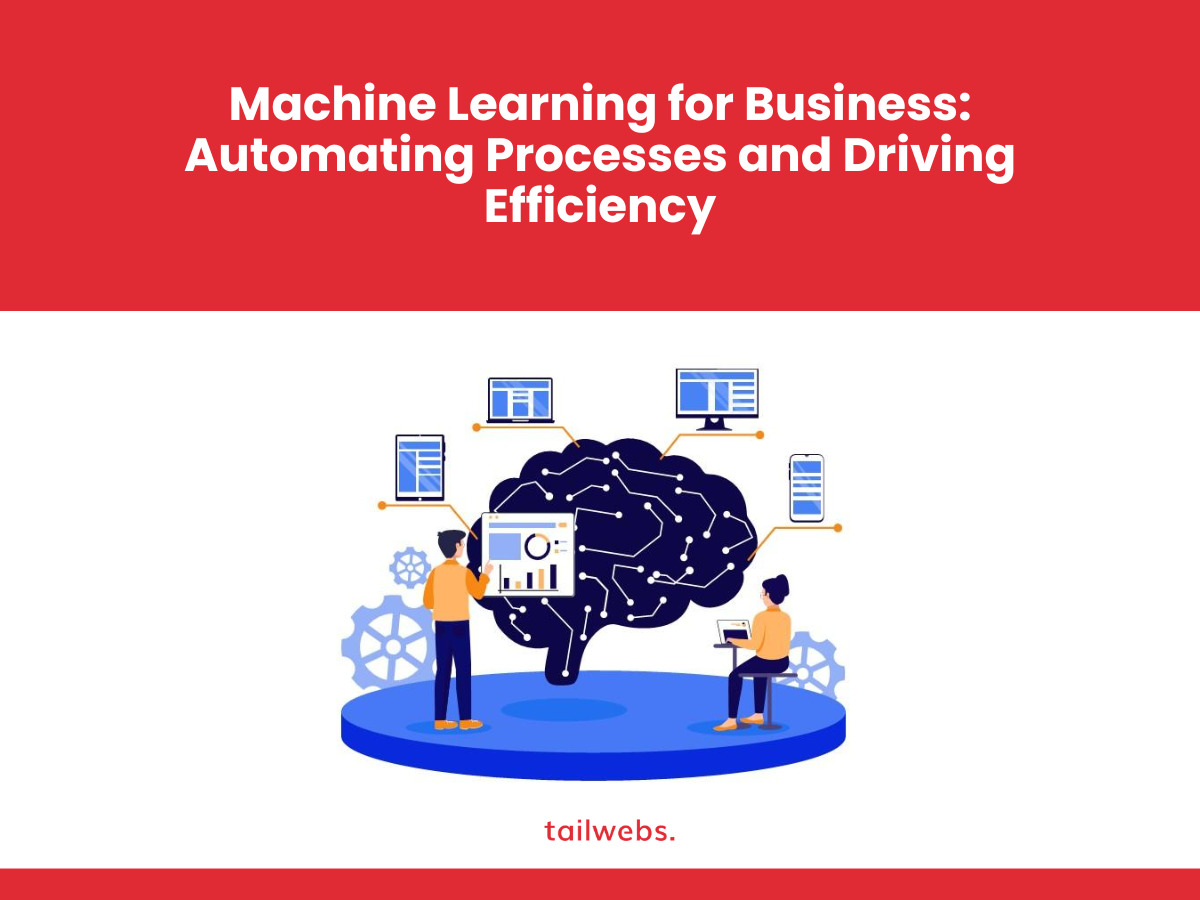Imagine a world where your business runs like a well-oiled machine, tasks are handled seamlessly without human intervention, and valuable insights emerge from your data, guiding you towards informed decisions. This isn’t a futuristic utopia – it’s the reality powered by machine learning (ML), a technology rapidly transforming every aspect of business operations.
Gone are the days of tedious manual tasks and gut-feeling decisions. ML, a branch of artificial intelligence (AI), empowers you to automate repetitive processes, extract actionable insights from data, and optimise operations for maximum efficiency. Whether you’re a small startup or a seasoned enterprise, ML has the potential to revolutionise your business like never before.
The Power of Automation in Machine Learning:
Let’s face it, manual tasks are not only time-consuming and error-prone, but they also drain the creativity and energy of your team. ML steps in as your tireless assistant, automating tasks like:
Data entry and processing:
Imagine invoices being automatically processed and expenses categorised, freeing up your accounting team for more strategic analysis.
Customer service:
AI-powered chatbots handle routine inquiries 24/7, leaving human agents to tackle complex issues and build deeper customer relationships.
Inventory management:
ML predicts demand and optimises inventory levels, preventing stockouts and minimising storage costs.
Fraud detection:
Advanced algorithms analyse transactions in real-time, identifying suspicious patterns and protecting your business from financial losses.

Data-Driven Insights for Smarter Decisions:
Data is the new gold of the business world, but without the right tools, it’s a treasure chest locked away. ML unlocks this treasure trove, extracting valuable insights and insights from your data to guide your decisions in every aspect of your business:
Marketing and sales:
ML analyses customer behaviour and predicts purchasing patterns, enabling you to personalise your marketing campaigns and target the right audience with the right message at the right time.
Product development:
ML analyses customer feedback and market trends, helping you identify new product opportunities and iterate on existing offerings for maximum customer satisfaction.
Financial forecasting:
ML predicts future revenue, expenses, and cash flow, allowing you to make informed financial decisions and prepare for market fluctuations.
Risk management:
ML identifies potential risks and vulnerabilities in your operations, enabling you to proactively mitigate them and ensure business continuity.

Real-World Impact: Stats and Success Stories
The benefits of ML for business are tangible and numerous. Consider these staggering statistics:
Businesses using ML report a 30% increase in productivity and a 20% reduction in costs. (McKinsey & Company, 2023)
84% of businesses believe AI will give them a competitive advantage. (Forbes, 2023)
AI-powered marketing campaigns can deliver 80% higher conversion rates. (Marketing AI Institute, 2023)
Examples abound of businesses thriving with ML:
Netflix: Recommends content you’ll love based on your viewing history, boosting engagement and subscriptions.
Amazon: Predicts what you’ll buy before you even know you need it, optimising inventory and maximising sales.
Uber: Uses ML algorithms to match riders with drivers efficiently, ensuring smooth and fast transportation experiences.
Getting Started with ML: Practical Tips
Implementing ML doesn’t require a team of data scientists and million-dollar budgets. Here are some practical tips to get started:
Identify your pain points and business goals. What repetitive tasks drain your resources? What decisions could benefit from data-driven insights?
Start small and scale gradually. Don’t try to overhaul your entire operation overnight. Choose a specific problem to tackle with ML and build success from there.
Invest in quality data and infrastructure. Garbage in, garbage out. Ensure you have clean, accurate data and the right infrastructure to support your ML initiatives.
Seek expert guidance. While you don’t need a team of data scientists, consult with experts who can help you navigate the implementation process and choose the right tools for your needs.
Recommended Tools and Resources:
Google Cloud AI Platform: A suite of AI and machine learning tools for businesses of all sizes.
Microsoft Azure AI: A collection of AI services for building and deploying intelligent applications.
Amazon Machine Learning: Tools and services for developers to build and manage machine learning models.
Books: “Machine Learning for Business” by Tom Mitchell, “Hands-On Machine Learning with Scikit-Learn, Keras & TensorFlow” by Aurélien Géron, “Artificial Intelligence for Dummies” by John Paul Mueller and Luca Massaron
Podcasts: Lex Fridman Podcast, AI Today, Machine Learning Guide

Conclusion:
The future of business is powered by data and intelligence, and machine learning stands as the engine driving this transformation. By embracing its capabilities, you can automate repetitive tasks, uncover hidden insights, and optimise every aspect of your operations, propelling your business to new heights of efficiency and success
Embrace the Journey: Continuous Learning and Adaptation
Remember, the world of machine learning is constantly evolving. New algorithms, tools, and techniques emerge every day, so don’t get complacent. Embrace a culture of continuous learning and adaptation to stay ahead of the curve:
Regularly explore new ML advancements and tools. Stay informed about the latest developments and be ready to incorporate them into your strategies.
Invest in the upskilling of your team. Train your employees on the basics of ML and encourage them to explore its potential in their respective roles.
Experiment and iterate. Don’t be afraid to try new things and adjust your approach based on results. The key is to learn from your failures and continuously improve.
Beyond Efficiency: The Ethical Imperative of ML
As powerful as ML is, it’s crucial to approach it with responsibility and ethical considerations:
Ensure your data is ethically sourced and unbiased. Bias in your data can lead to discriminatory outcomes, so be vigilant about data collection and analysis practices.
Prioritise transparency and explainability. It’s important to understand how your ML models work and explain their decisions to avoid creating a black box of technology.
Focus on human-centred ML. Remember, technology is there to augment human capabilities, not replace them. Ensure your ML initiatives create a positive impact on both your employees and customers.
Machine learning is not just a technological tool; it’s a transformative force with the power to reshape your business and the world around you. By embracing its potential, approaching it responsibly, and continuously learning, you can unlock a future of unprecedented efficiency, insight, and growth. So, take the first step today, dive into the fascinating world of machine learning, and become a leader in this exciting new era of intelligent business.




